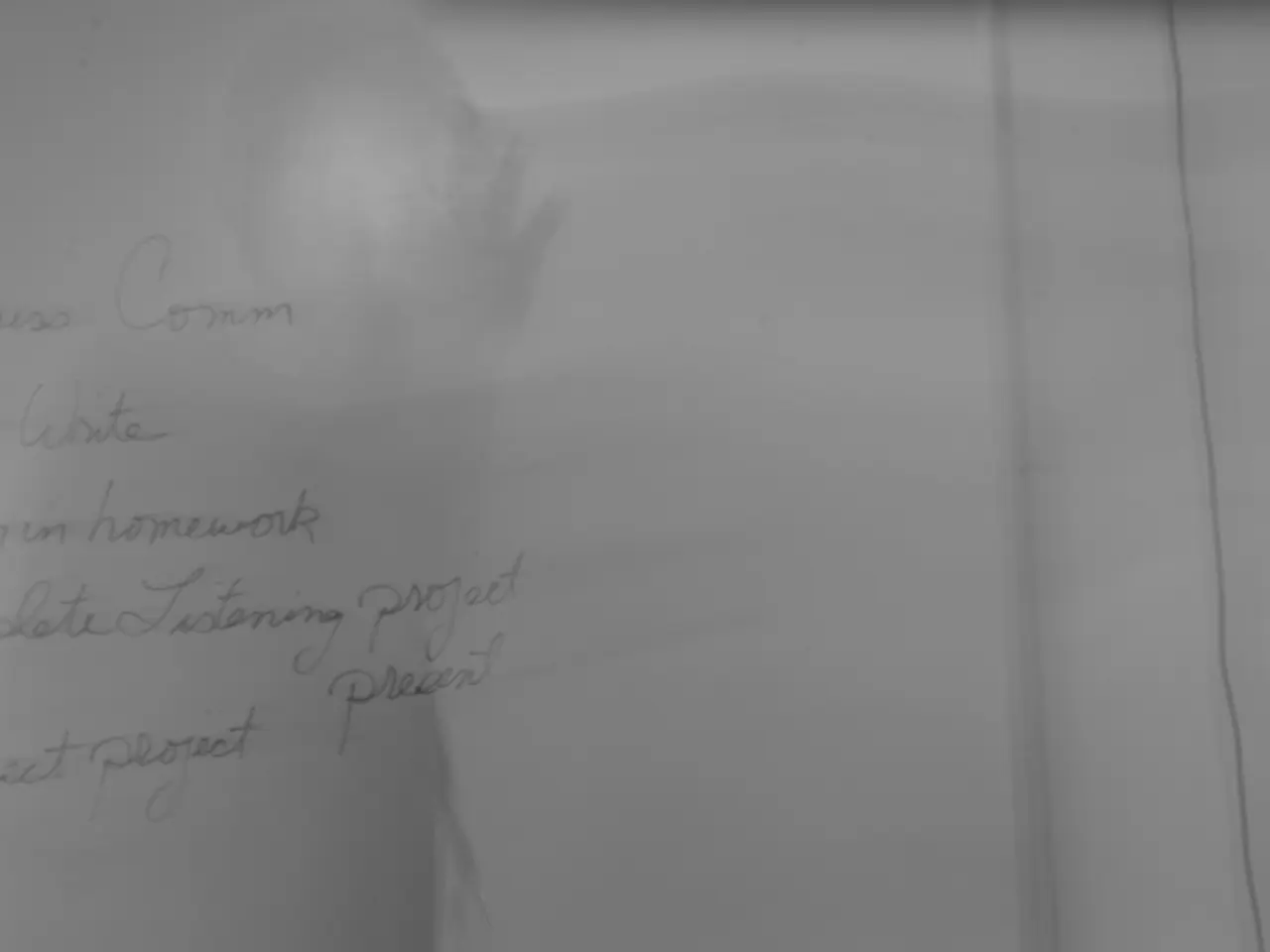Randomness and Creativity in Problem-Solving: The Impact of Disorder in the Brain
In the realm of creativity and problem-solving, it's often believed that meticulous planning is the key to success. However, a new perspective is emerging, suggesting that creativity can also stem from letting go, embracing randomness, and allowing the brain to explore unexpected pathways.
This perspective is grounded in the concept of brain entropy, a measure of the level of irregularity in brain signal patterns. A brain with high entropy shows complex, dynamic activity with many possible states, much like a chaotic and ever-changing landscape.
According to the entropic brain hypothesis, different levels of brain entropy correspond to different states of consciousness. Higher entropy is associated with increased mental flexibility, a trait that thrives in brains with high entropy. This flexibility is crucial for divergent thinking, the ability to generate multiple solutions to a problem.
Studies using EEG microstate and entropy analyses suggest that lower brain network dynamics (i.e., lower entropy and longer microstate durations) correspond to more rigid or less flexible brain activity. On the other hand, higher entropy corresponds to shorter microstate durations, allowing faster switching between brain states. This dynamic flexibility enhances the brain's capacity for creative thought and adaptive problem-solving.
Creative cognition involves a balance between top-down goal-directed processing and bottom-up emotion-driven processing. Conditions that modify brain neuromodulation, such as those seen in Parkinson's disease, may shift this balance, sometimes enhancing latent creativity by reducing self-censorship and encouraging original idea generation.
Higher entropy also correlates with increased gamma-band activity associated with insight generation and pattern recognition—key components of problem-solving. Neural synchrony and connectivity in various EEG frequency bands modulate cognitive engagement and focus during problem-solving tasks, further linking brain entropy and network variability to enhanced executive functions.
Practices like meditation, free writing, improvisation, and strategic boredom can help increase mental entropy. Interestingly, research into psychedelics has shown that substances like psilocybin or LSD significantly increase brain entropy, suggesting a possible link between these substances and enhanced creativity.
However, it's important to note that a brain that is only high in entropy risks becoming unfocused or scattered. History's greatest inventions often rely on a brain primed to connect unrelated dots, a characteristic of high entropy, but also one that requires a balance with focus and concentration.
In some mental health conditions, such as schizophrenia, entropy may become excessive, leading to disorganized thought. Therefore, while boosting brain entropy can foster creativity, it's crucial to maintain a balance that allows for focused thinking and effective problem-solving.
In conclusion, brain entropy reflects neural flexibility, complexity, and information transfer which underpin creative thinking and problem-solving effectiveness by enabling diverse, dynamic brain states rather than fixed patterns. By embracing practices that increase brain entropy, we can unlock our creative potential and tackle problems in new and innovative ways.
Mental health and creativity can be fostered through practices that increase brain entropy, such as meditation, free writing, improvisation, and strategic boredom. This increased brain entropy is associated with a heightened complexity and variability in neural activity, which facilitates creative thought and adaptive problem-solving.
Studies have revealed that higher entropy correlates with increased gamma-band activity, key components of insight generation and pattern recognition that are crucial for problem-solving. Adequate levels of brain entropy can promote a balance between top-down goal-directed processing and bottom-up emotion-driven processing, fostering creative cognition.
However, it's essential to maintain a balance between brain entropy and focus, as a brain that's only high in entropy risks becoming unfocused or scattered. In some mental health conditions like schizophrenia, entropy may become excessive, leading to disorganized thought. Mental health and wellness, fitness and exercise, and health-and-wellness supplements can aid in the maintenance of this balance.
The science behind creativity and problem-solving now suggests that a meticulous planning approach might not always be the best—sometimes, embracing randomness and allowing the brain to explore unexpected pathways can unlock the creative potential within us. This perspective, rooted in brain entropy, holds promise for innovation in many fields.
Practices like mindfulness, cognitive training, and nootropics can enhance focus, attention, and memory, further promoting mental health and creativity. Research has shown that substances such as psilocybin or LSD significantly increase brain entropy, suggesting a possible link between these substances and enhanced creativity.
However, the use of such substances should be done responsibly and in line with medical guidance due to their potential side effects. It's important to remember that creativity is not a one-size-fits-all endeavor, and what works for one person might not work for another.
In the pursuit of creative solutions and innovative thinking, science can provide valuable insights into the intricate workings of the brain. By understanding the role of brain entropy in our cognitive processes, we can learn to harness its power and channel our creativity effectively.
In the ever-evolving landscape of mental health, science, problem-solving, innovation, and creativity intersect in fascinating ways. This convergence can lead to breakthroughs that redefine what we consider possible, push the boundaries of human connection, and shape our future for the better.
Ultimately, developing healthy cognitive habits, incorporating practices that boost brain entropy, and keeping an open, curious mind will empower us as individuals to navigate the complexities of life and the world with greater skill, resilience, and creativity.




